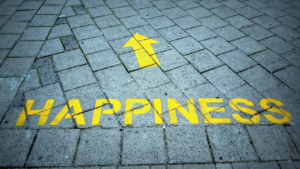More than anything else, vitriolic political dialog has contributed to a rising sense of incivility in the world. The staff at National Today writes, “If you’re anything like most people, then you are constantly mumbling things to yourself like, ‘People these days are just rude. What happened to the good days when everyone was polite?’ Sound familiar? Of course it does. For those of you that wish you could change the world, National Random Act of Kindness Day, on February 17, is just for you.”[1] If you think that changing the world through acts of kindness is nothing more than hyperbole, you might be surprised. Journalist Catherine Pearson reports, “Findings, published in the Journal of Experimental Psychology in August [2022], corroborate just how powerful [random acts of kindness] experiences can be. Researchers found that people who perform a random act of kindness tend to underestimate how much the recipient will appreciate it. And they believe that miscalculation could hold many of us back from doing nice things for others more often.”[2]
History of Random Acts of Kindness Day
According to the National Today staff, “Random Acts of Kindness Day was initiated in 1995 in Denver, Colorado, by a nonprofit organization called The Random Acts of Kindness Foundation [RAK Foundation]. The event spread to New Zealand nine years later, in 2004, and the observance of the holiday became more and more widespread.” The RAK Foundation wants to make kindness a societal norm. The Foundation’s website asks, “Can you imagine a world where kindness is the norm?” It adds, “That’s the world we want. That’s why we do what we do. And it requires some intentional actions. We love connecting people with ideas and resources. We encourage and celebrate acts of kindness. It’s definitely not normal. But it might be soon. #MakeKindnesstheNorm.”
This year the RAK Foundation staff invites you to “participate in the first annual #KindnessExperience on Random Acts of Kindness Day!” They add, “You might just change someone’s life — maybe even your own!” What is “The Kindness Experience”? According to the staff, it is “a simple experiment for individuals to experience the scientific benefits of kindness. … Together, we can show the world the amazing impact simple acts of kindness can have on the recipient, the giver and anyone who witnesses it.” How do you join in this experiment? According to the staff, “It’s easy as 1, 2, 3.” The three steps are:
Step 1. Select two kindness ideas. “Pick your top two kindness ideas and write each one on a separate piece of paper. Put the ideas in a container and randomly select one. Engage as many people as you can — wherever you spend your time!”
Step 2. Perform the act of kindness.
Step 3. Share how it went. “Tag @rakfoundation or email the RAK Foundation at info@randomactsofkindness.org.”
Meditation guru Vishen Lakhiani insists that becoming kinder is a superpower that can boost your productivity at work. He suggests the best to start is at home by “showing compassion to your family first. Then expand the practice to your coworkers, your city, country, and finally the world.”[3]
The Power of Kindness
Most of us spend a good deal of time at work. According to author Johanna Cider, “Modern workplaces can be hot-houses of negativity, competitiveness, and stress.”[4] She further observes, “For many business owners, success is a numbers game. The importance of workplace kindness can, therefore, seem irrelevant. What you might not realize, though, is that a culture of kindness has tangible benefits which will lead to happier staff and a better bottom line.” She goes on to discuss three benefits of kinder work environment. They are:
1. A positive and healthy workforce. Cider asserts, “Well-rested, happy, healthy employees do better work. … Time spent bonding with colleagues can be seriously beneficial for the whole team.”
2. Kindness begats kindness. Cider writes, “As Aesop once said, ‘No act of kindness, however small, is ever wasted.’ Building a workplace of kindness doesn’t have to entail a systemic, resource-intensive overhaul. Simple gestures repeated often can be just as transformative. Giving a compliment, inviting your colleague for lunch, or offering congratulations are all little acts of kindness which cumulatively build a strong culture of compassion.”
3. Higher employee engagement. Cider asks, “What do you find in workplaces devoid of kindness?” Her answer, “Disengaged workers, that’s what.” A kind workplace environment, on the other hand, encourages more engaged employees. According to Cider, “Engaged workers are workers who believe in what they do. They are people who are happy to turn up on Monday, ready to tackle that exciting new project or to offer new ideas to the boss.”
Behavioral scientists Övül Sezer, Kelly Nault, and Nadav Klein agree that kindness can be a powerful motivator in the workplace even if that workplace is remote. They explain, “Most management advice has focused on how to sustain productivity during the pandemic, yet the power of kindness has been largely overlooked. Practicing kindness by giving compliments and recognition has the power to transform our remote workplace.”[5] Like Cider, they suggest kindness in the workplace has three benefits.
1. Better workplace environment. Sezer and her colleagues assert, “Practicing kindness will be immensely helpful to our colleagues. Being recognized at work helps reduce employee burnout and absenteeism, and improves employee well-being. … Receiving a compliment, words of recognition, and praise can help individuals feel more fulfilled, boost their self-esteem, improve their self-evaluations, and trigger positive emotions, decades of research have shown.”
2. Improved employee satisfaction. Sezer and her colleagues explain, “Practicing kindness helps life feel more meaningful. For example, spending money on others and volunteering our time improves wellbeing, bringing happiness and a sense of meaning to life, research finds. Being kind brings a sense of meaning because it involves investing in something bigger than ourselves. It shapes both how others perceive us — which improves our reputation — and how we view ourselves.”
3. Greater happiness. Sezer and her colleagues note that studies have found, “Giving compliments can make us even happier than receiving them. … Consistently, we found that giving compliments actually made people happier than receiving them. Surprisingly, though, people were largely unaware of the hedonic benefits of being kind.”
Concluding Thoughts
The late religious leader Gordon B. Hinckley wrote, “Civility carries with it the essence of courtesy, politeness, and consideration of others. All of the education and accomplishments in the world will not count for much unless they are accompanied by marks of gentility, of respect for others, of going the extra mile.” Today would be a great day to experiment with being kind. It needn’t cost you anything to show a little kindness — and, what you get in return might surprise you.
Footnotes
[1] Staff, “Random Act of Kindness Day – February 17, 2023,” National Today.
[2] Catherine Pearson, “The Unexpected Power of Random Acts of Kindness,” The New York Times, 2 September 2022.
[3] Stephanie Vozza, “How becoming a kinder version of yourself boosts productivity,” Fast Company, 20 October 2022.
[4] Johanna Cider, “The Benefits of Creating a Culture of Kindness in the Workplace,” The Kind Blog, 12 June 2019.
[5] Övül Sezer, Kelly Nault, and Nadav Klein, “Don’t Underestimate the Power of Kindness at Work,” Harvard Business Review, 7 May 2021.





